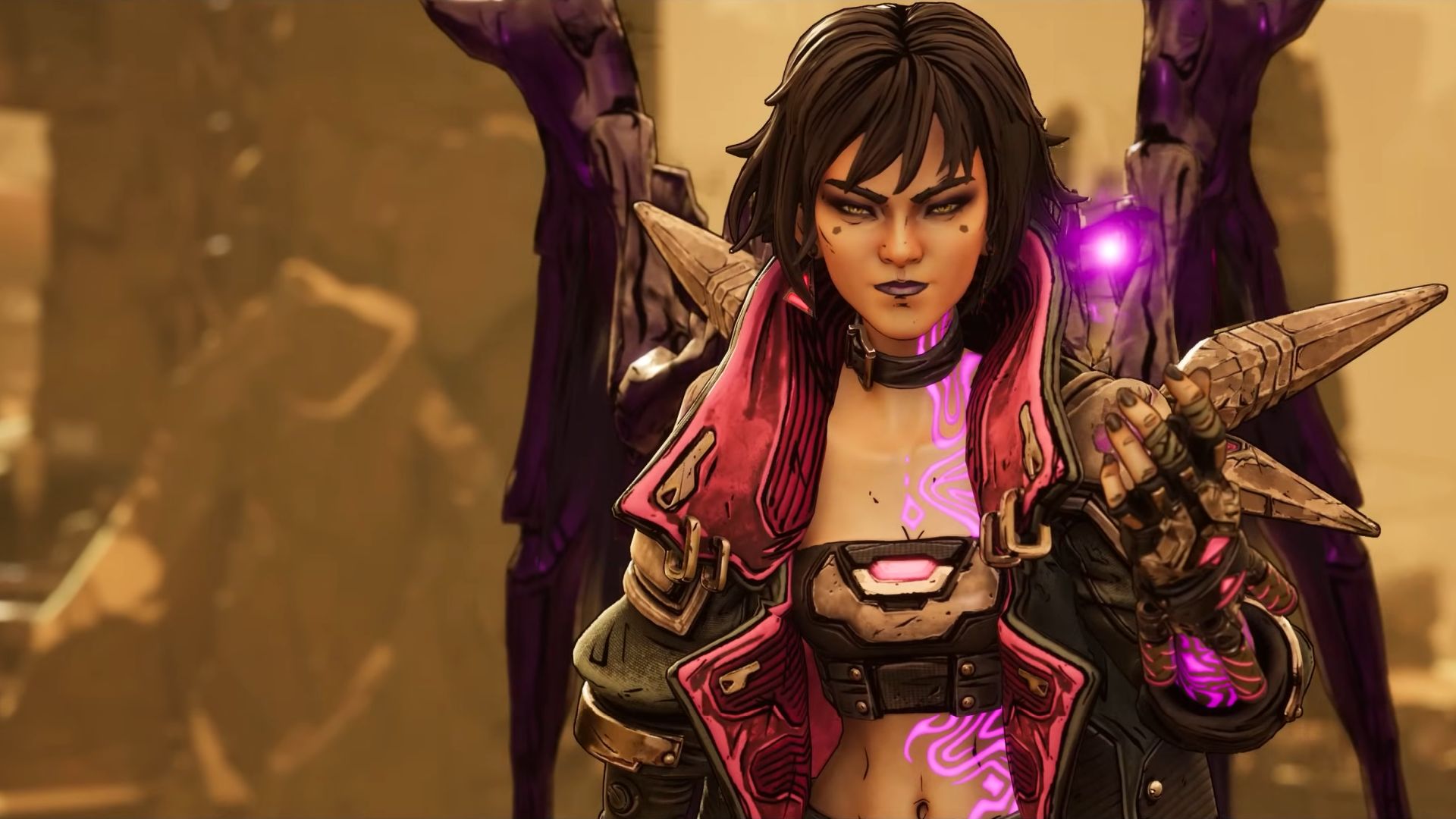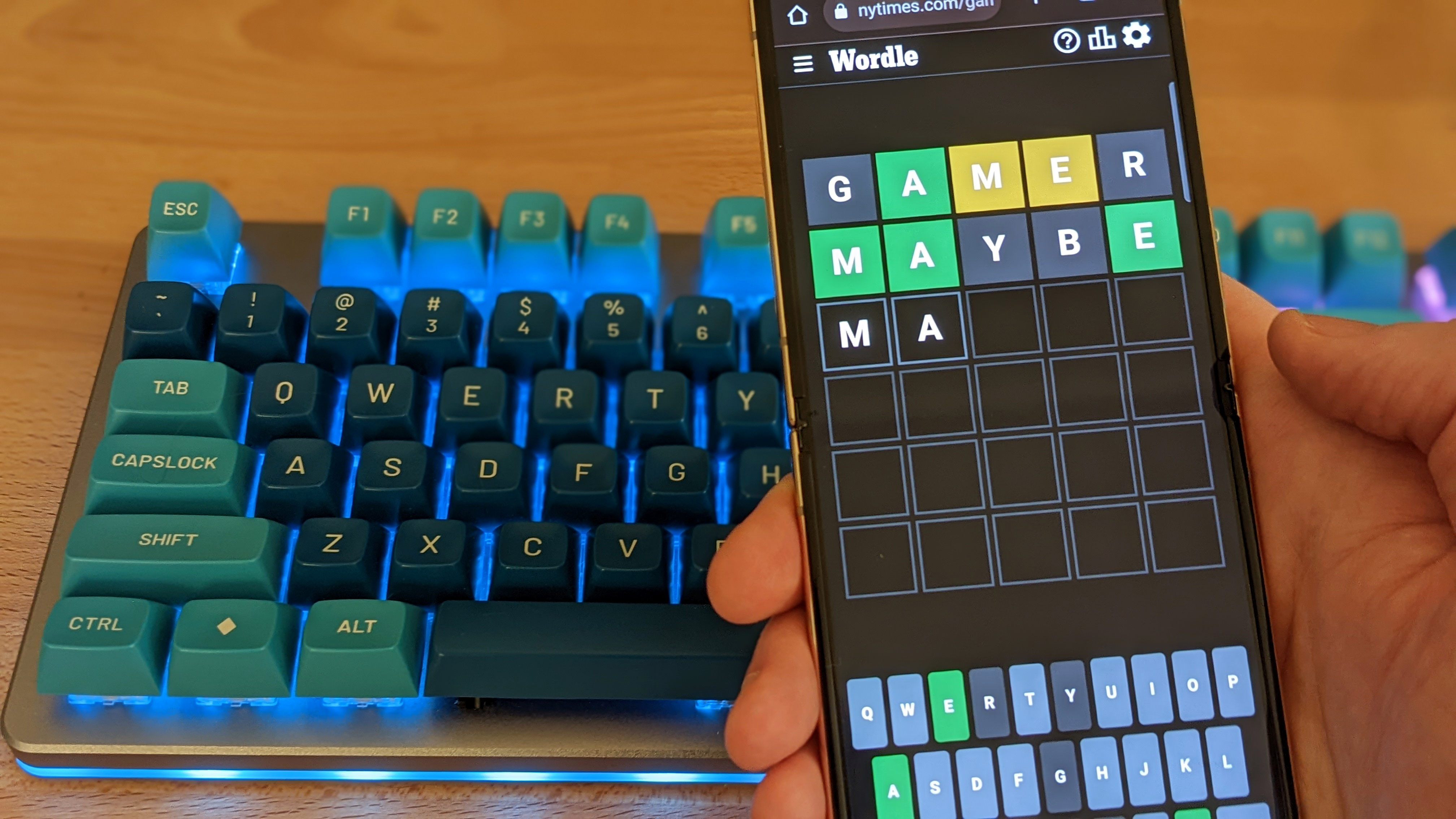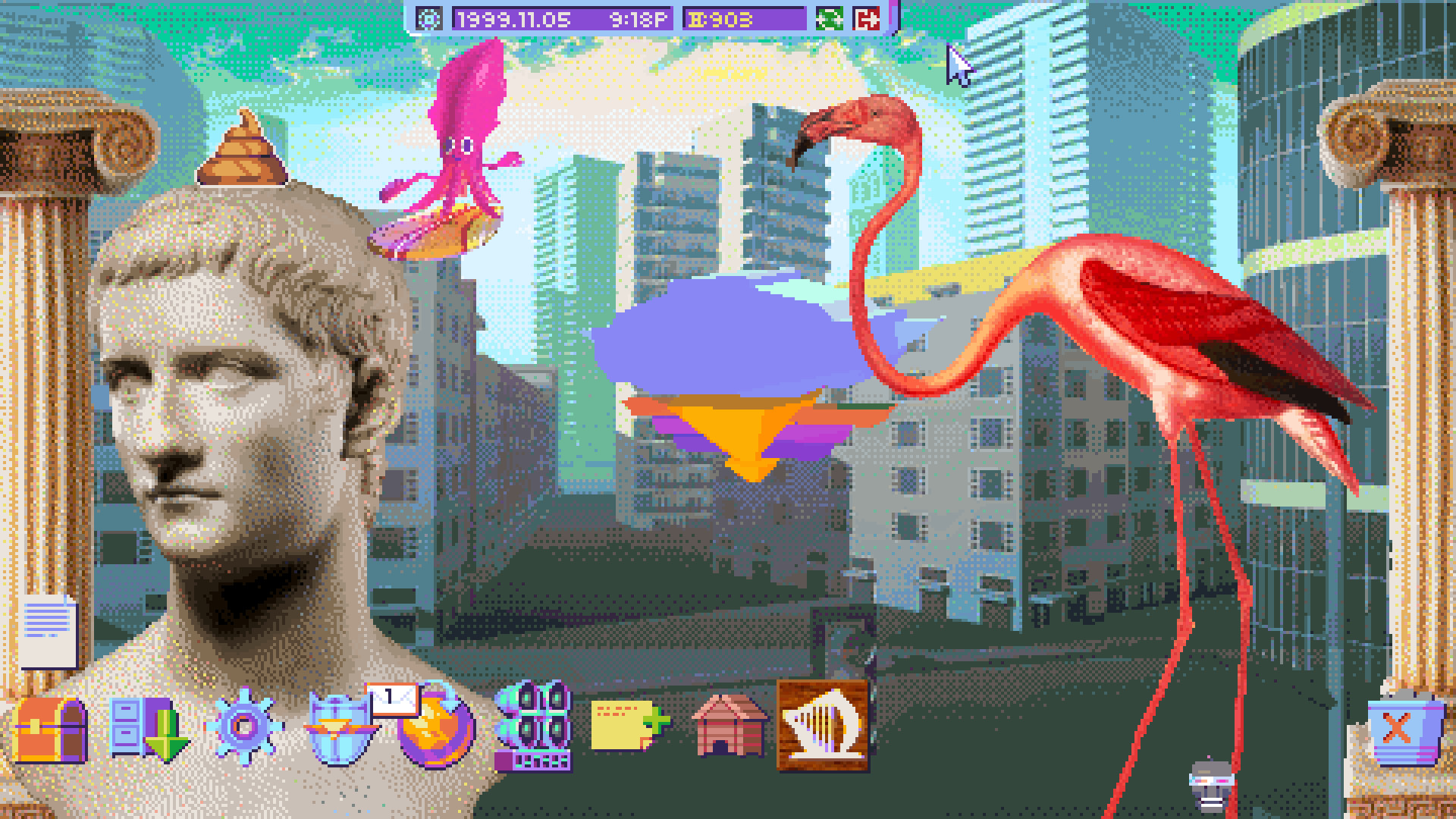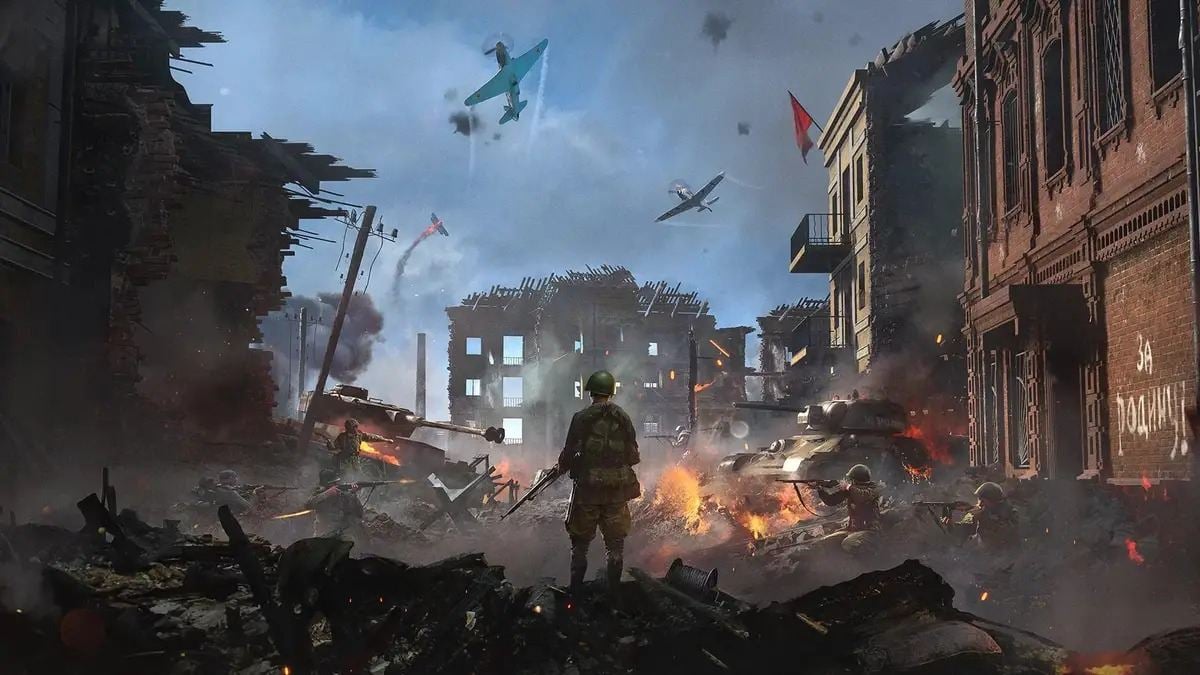
When it comes to over-the-top roleplaying games, it’s hard to beat the bonkers worlds and stories I’ve come to expect from the Xenoblade Chronicles saga. With Xenoblade Chronicles 3, massive improvements have been made to combat, quest design, and the RPG sandbox, while retaining the absurd and awesome environments, and a laser-focus on great characters and an impressive (if convoluted) story. Of course, while this third entry evolves in some key areas that make the epic journey more consistently fun than the two mainline games that came before it, it also repeats some of the same mistakes, including sloppy writing, weak bosses, and graphics that often leave something to be desired. Even so, Xenoblade Chronicles 3 is already competing for the spot as my favorite iteration of this beloved series.
At the heart of any Xenoblade game is a fantastically bizarre world and an epic story that’s propelled into utter insanity by the end, and Xenoblade Chronicles 3 is no exception. Everything about the war-torn world of Aionios is completely foreign, from the 10-year life spans the world’s pod-grown residents live, to the constant war to power up “flame clocks” that each faction draws life from, to the Off-Seers who play flutes to release the dead as sprites of light. All of these puzzling elements unravel over the course of the extensive adventure, and being a part of that journey is uniquely satisfying in a way only Monolith Soft seems capable of pulling off.
Even those who have never played a Xenoblade game before will be able to enjoy this extremely self-contained story. There are definitely references and tie-ins to Xenoblade Chronicles 1 and 2, but they’re not crucial to anything so you aren’t likely to take notice of them at all unless you know what to look for. For those like myself who have been following along from the beginning, there’s plenty to enjoy that felt like a nice reward for keeping up with the series for all these years.
But while the story and world are delightfully weird, they aren’t always effectively used, especially when it comes to the extremely hit-or-miss writing that has characters retreading the same developments over and over again and beating you over the head with the story’s themes and ideas. The concepts and characters almost never stop shining, but it’s not always told with finesse, and oftentimes three lengthy cutscenes are used to accomplish what might have just as well been covered with a single line of dialogue. Some sections had so many exhaustive cutscenes occurring one after another that a painful sense of deja vu crept over me and dragged down what was an otherwise interesting development. Not to mention the fact that just about every anime story cliche in the book has been included in the maximum doses legally permitted. Add in some severe pacing problems, like one section that has you go undercover to perform menial tasks, or another that has you trotting across the world to collect pieces of metal, and I often felt like my time wasn’t being respected with so much filler padding out the adventure. Some of that is fine, but in a game that took 150 hours to complete it might’ve been better to trim out some of the unessential parts.
Even when the story drags the characters shine brightly.
The good news is that, even when the story drags a bit the characters shine brightly, with very few exceptions. Whether you’re hanging out with the brash meathead Lanz and his simple charms or spending time with the studious bookworm Taion, it was really hard for me to not grow to love the ragtag band of misfits and ne’er-do-wells that comprise your party. Sure, they aren’t the most original characters – I’ve definitely seen their like in half a hundred games and shows before – but after so many hours with these lovable scamps, I’ve come to regard them all as my chosen family. That’s especially true when each character is given so much time in the limelight, with every party member getting extensive personal histories and fully voice-acted optional side quests that flesh out their backstories and provide additional color. Even some of the less interesting members like Sena, the under-achieving jock who I considered the runt of the litter, still ended up winning me over in the end thanks to all the time and attention given to developing her.
Of course, it wouldn’t be Xenoblade without bizarre, otherworldly locations to adventure in, and the environments in this one are suitably odd. There’s one area that takes place inside of a giant discarded sword, and another that leads you along the branches of a massive tree. Exploring these areas as you unravel the mysteries of Aionios add to the unpredictability and weirdness of the world in a really awesome way. That said, compared to some of the bonkers destinations from previous Xenoblade games, the places you visit in this odyssey are mild by comparison. There are a few highlights, but nothing that comes close to climbing up a giant dead robot’s elbow or winding up inside the body of an ancient creature. Instead you mostly explore standard settings like a snowy area, a big, sandy desert, or a large body of water with some small islands. It still captures the spirit of exploration and discovery for which Xenoblade is known and there are certainly a few surprises, but I do find myself wishing the developers had gotten a bit weirder with it considering the series’ track record.
It’s also unfortunate that, although Xenoblade 3’s environments are awesome to roam around in, they rarely look pretty due to the Nintendo Switch being pushed to its absolute limits by such an ambitious voyage. I played on my OLED model and switched between docked and mobile mode regularly, but even with Nintendo’s most recent hardware textures are often low-res, there’s frequent pop-in (and out), and oftentimes I just couldn’t help but feel like the world was a bit blurry. The good news is that I quickly got used to these visual shortcomings and, once I accepted it for what it was, it only rarely dampened my enjoyment. Thankfully cutscenes, at least, are crisp and the frame rate runs at a rock-solid 30 even when dozens of things are happening on-screen at the same time, but it’s still sorta disappointing to see such obvious hardware limitations in an adventure that reaches for the stars in so many other areas.
As you explore the world you’ll recruit new party members to your team, fight bizarre creatures, and distract yourself with dozens of hours of side quests that are mostly worthwhile. If you were annoyed by the fetch quests from previous games, you can look forward to the fact that Xenoblade 3 massively improves things in this regard by making many optional quests actually feel substantial by introducing new characters and offering some story snippets that make your effort worth the trouble. In my completionist playthrough I helped a nopon and a human put aside their differences across a series of missions, became best friends with a robot, and helped various settlements resolve their disputes. That said, there are still plenty of missions that feel very much like filler and have you running around collecting berries and rocks or some such nonsense, and those are as gut-wrenchingly unpleasant to do as they’ve ever been – though at least now you aren’t bombarded by them every five minutes.
Side quests are so impactful that they almost feel mandatory.
What’s especially impressive is that some side quests are so impactful that they almost feel like they should have been mandatory. Some end with you getting a new party member or triggering a cutscene that fleshes out an important area of a character’s backstory. And thankfully, most of these missions are even appropriately labeled so it’s easy to identify which ones you should go out of your way to do and which you’d be forgiven to skip. In an adventure that sometimes makes questionable decisions concerning how it uses all the time it demands from you, I was deeply grateful that I felt most of my time spent chasing around side quests was rewarded.
Similarly, numerous improvements have been made to the combat system that make it feel far less repetitive and more engaging than its predecessors. While the foundation of combining auto-attacks, super-powered Arts, and attack combos remains largely intact, a plethora of options have been added that successfully staves off stagnation for over 100 hours – and that’s no small feat! It’s accomplished with (among other things) six playable characters plus a guest NPC that can be swapped out, new transformations that combine two characters into their Ouroburos form making them almost impossible to take down for a limited period of time, and returning chain attacks, which let you deal a ton of damage by playing a simple minigame.
As you travel around Aionios, you’ll encounter all manner of wild beasts, legendary creatures, bloodthirsty humans, and giant robots to fight. Not all enemies are created equal, and fighting against giraffe-like creatures that lazily kick at you doesn’t quite compare to robotic opponents whose movesets and animations make them feel like a lot more work was put into them. But the variety of things to slay at least gives you lots of new experiences throughout the journey.
There’s also an awesome new mechanic that lets characters trade classes with one another and with guest NPCs that have entirely different skill sets. In fact, doing so is incredibly important to progression because you gain new abilities by mastering the classes of your fellow party members. You might become an awesome healer with a laser gun or a soul-stealing boxer who takes abilities from powerful creatures you fell. Playing around with all the classes not only serves as an addictive loop that kept me busy throughout the adventure, but also helps break up some of the monotony we had to slog through in prior iterations of the combat system that tethered you to a single class and lacked variety.
Playing around with all the classes helps keep combat fresh.
The drawback is that with so many new mechanics and all the complexity of everything Xenoblade Chronicles 3 juggles, you’ll quite frequently be interrupted to read through tutorial cards – and when I say “frequently” I mean those will keep coming at you quite literally until the very end… and even beyond the credits. Not only does this slow the journey in an irritating way, but it can be downright overwhelming to keep track of some many mechanics all at once. I’ve gotta believe there’s an easier way to get me to ingest all of that information without flash cards popping up like I’m studying for the LSAT.
Another major gripe I’ve always had with the series that continues to be a problem in Xenoblade 3 is how characters still shout the same lines over and over again, with no reprieve. I must have heard Eunie say “Hear that, Noah? Lanz wants something a bit meatier,” well over 500 times during my playthrough, and there doesn’t appear to be any way to turn combat dialogue off like you could in Xenoblade Chronicles Remastered. If this sounds like a minor complaint to you, then you most likely haven’t heard someone say the same phrase so many times that it’s become integrated into your very DNA. It’s seriously a harrowing experience, and I’ll never understand why this is still a problem in 2022.
Boss fights are also a bit underwhelming, as you fight a lot of the same class of boss enemies who rarely have anything to differentiate them from one another. They really like throwing big purple humanoid demon creatures at you, for example, which gets quite old pretty fast. They’re also fans of making you fight the same boss twice in a row, with cutscenes serving as bookends between each encounter. And don’t even get me started on the numerous times you defeat a boss only to immediately enter a cutscene wherein the boss defeats you. I get that it’s a very common cliche in JRPGs (and specifically in Xenoblade as a series), but Xenoblade Chronicles 3 really abuses its privileges in this regard, to the point where I began to assume each victory over a boss was going to lead into a cutscene wherein I lose the fight. Put all that together and you end up with boss fights not really being something I looked forward to, even though combat against normal enemies is otherwise fantastic.






